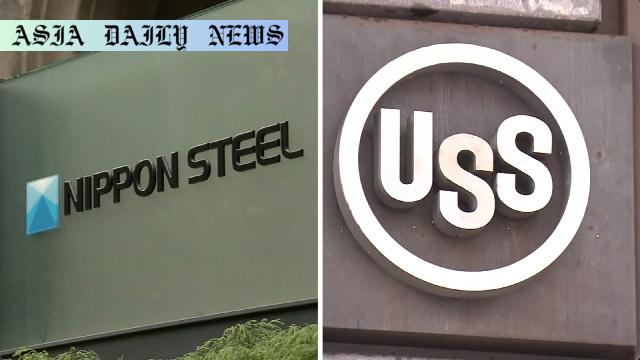US Steel buyout: The lawsuit against Biden’s block of the US Steel buyout begins Monday, raising accusations of political influence.
Biden blocked US Steel’s buyout by Nippon Steel due to national security concerns.
Lawsuit filed by Japanese and US steelmakers challenges the legality of Biden’s action.
Hearing scheduled Monday will examine submitted documents.
Companies allege Biden preemptively blocked deal for political reasons.

Biden Blocks US Steel Buyout: The Background
On January 3, 2024, former U.S. President Joe Biden blocked the proposed buyout of US Steel by Nippon Steel, citing national security concerns. This decision followed an inconclusive review by the Committee on Foreign Investment in the United States (CFIUS). The block has sparked a legal challenge spearheaded by both the Japanese and US steelmakers, claiming the order was politically motivated and unlawful.
Lawsuit and Legal Claims
The lawsuit against the block was filed with a federal appeals court in Washington. The central claim is that former President Biden exercised political influence to block the acquisition prematurely. Legal representatives of the companies argue that Biden announced his decision to block the takeover in March 2024—months before CFIUS could even complete its process. They allege this was an attempt to gain political leverage with the United Steelworkers union during his reelection campaign, compromising the legitimacy of the decision.
CFIUS and Its Role
The Committee on Foreign Investment in the United States is tasked with vetting acquisitions that could pose risks to national security. In this case, CFIUS failed to unify its recommendations, escalating the matter to the president. Critics argue that Biden’s purported predetermination of the outcome undermines the impartiality of the process, damaging the trust in this key advisory body.
National Security or Political Agendas?
Maintaining control of US Steel, a key player in America’s domestic industrial landscape, carries implications for national security. Supporters of Biden’s decision commend the importance of safeguarding critical industries. However, opponents question whether this reasoning was genuine or merely a facade for political motives. Regardless of intent, the ensuing controversy reflects the complexity of balancing economic globalization with national interests.
Potential Implications for Foreign Investment
The lawsuit has broader consequences for foreign investments in the United States. Nippon Steel is one of the world’s largest and most respected steel producers. Blocking its acquisition of US Steel sends a message that foreign entities might face heightened scrutiny or political obstacles when seeking investments in key American industries. This could discourage future international collaborations with U.S. companies, impacting the broader economy.
The Way Forward
The lawsuit calls for Biden’s order to be overturned and for CFIUS to conduct a fresh review of the buyout. This case also highlights the necessity of ensuring transparency and impartiality in decisions that have significant ramifications on global business relations. The hearing on Monday will be a crucial first step in resolving the dispute, offering clarity on the legal and ethical standards surrounding such impactful decisions.
Commentary
Complex Interplay of Politics and Industry
The Biden administration’s decision to block the sale of US Steel highlights the complex tension between protecting national interests and fostering economic globalization. While national security concerns are undeniably significant, the timing of Biden’s announcement raises suspicions of political maneuvering. This delicate balance between policy and politics will undoubtedly serve as a critical point of discussion in the ongoing legal case.
Impact on Foreign Investment
Cases like this one cast doubt on the predictability and fairness of the investment process in the United States. Foreign companies, especially those from allied nations like Japan, expect clearer rules of engagement. Blocking Nippon Steel’s acquisition could make international investors wary of pursuing deals that involve strategic industries in the U.S. Disruptions in trust may lead to unintended economic consequences, such as a slowdown in innovation or missed opportunities for collaboration on global challenges.
Lessons for Policymaking
The controversy underscores the importance for governments to ensure transparency and impartiality when dealing with foreign investment and national security concerns. The involvement of CFIUS assumes neutrality, but when bypassed or influenced by politics, it raises essential questions about the purpose and effectiveness of advisory bodies. The hearing and the court’s decision will set an important precedent for future cases involving similar issues.


